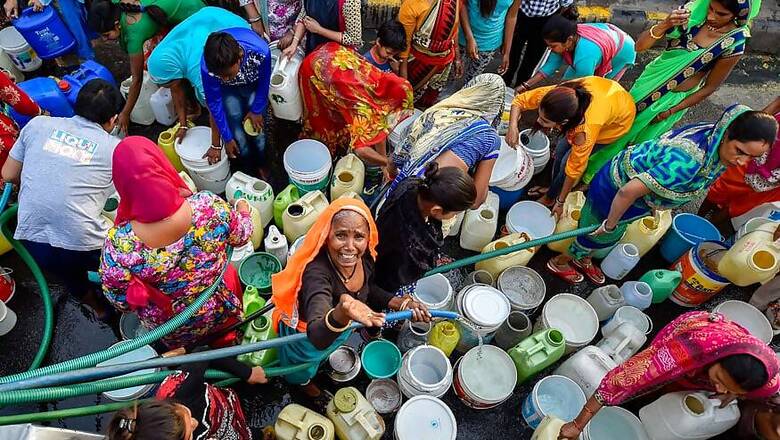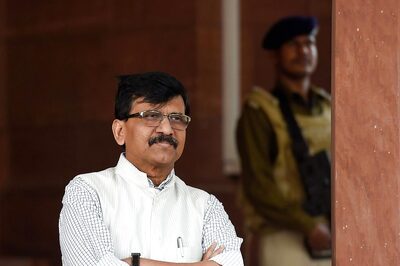
views
The other day I got into an argument with one of my neighbours who washes the entire area around his house with a water pipe, every day. I would always wonder if this person realises what he is doing. So finally I gathered up the courage, went up to him, and told him how he is not using his mind.
"Sir, do you realise how much water you are wasting every day," I ask. What he says next sums up the attitude we have towards using water and how we treat this essential natural resource.
"It's my water, what’s your problem," he says.
We are busy discussing politics, terrorism and other global issues without even giving a second’s thought to the resource that might very well define global politics and maybe even lead to wars in the future. As Cape Town heads towards 'Zero Hour' on July 15, 2018, the reality of global water crisis is still yet to hit billions across the globe.
Every March 22, on World Water Day, the global community comes together to highlight facets of the issues relating to water. This year's theme, 'Nature for Water', aims at exploring nature-based solutions to solve the issues of water scarcity.
While the spotlight is on Cape Town right now, the Indian scenario is not much different. According to a March 2017 UN report, India will be at the epicentre of the water wars in South Asia due to its geographical position in the region.
Not surprisingly, experts have already pointed at the possibility of a large-scale water war between India and China over the waters of Brahmaputra. The two major powers of the region have been carrying out developmental works around the river at the expense of the other's water requirements.
With India's surface water reaching its threshold, the country is already struggling to provide clean water to much of its populace. Data from the Ministry of Water Resources highlight how India is home to 18% of the world population but accounts for only 4% of the total usable water resources.
While the ever-increasing population is a major concern, equally important is the lack of incentive on part of the lawmakers to take measures to at least weaken the crisis. The lawmakers need to start focusing on groundwater regulation instead of looking at ways to solve issues of surface water
Until 2017, landowners saw groundwater as their own and a resource they can exploit without any need to protect and replenish it. The Union government recognised the need to modernise the regulatory framework and brought the Groundwater Bill, 2017 that recognises the unitary nature of groundwater and the importance of protecting it at the aquifer level.
The increasing industrialization and development works has brought its own set of problems — contamination of fresh water sources and excessive use by industrial plants has resulted in major vulnerabilities in groundwater reserves across the country.
The underlying point behind all the aforementioned statistics and studies is the fact that unless a doomsday-like scenario is presented to the people, they won't realise the gravity of the situation. Common understanding is limited to how water reaches their taps. There is need to make them aware of the source of water, how it is collected, and what it takes to process and transport it to the houses. This is critical to make them understand the value of such an essential resource.
While nations are claiming dominance over nuclear warheads and data systems, it wouldn't be surprising if a country claims dominance over others in terms of their power over water. Coming back to the conversation with that resident in my locality, "It's not yours or mine, it’s ours I say."
The next thing I know, he walked back inside his house without any sign of regret or even uttering a word.



















Comments
0 comment